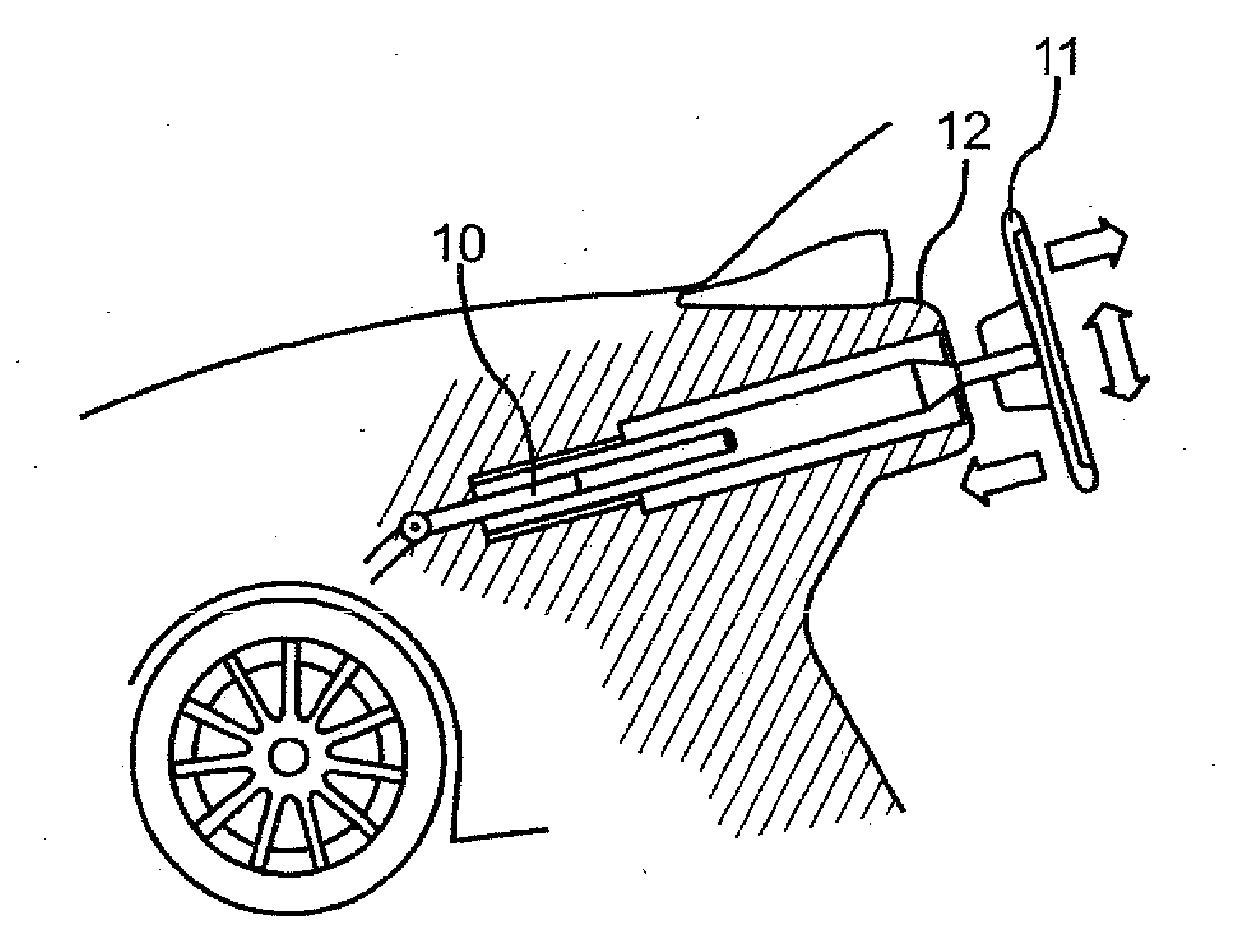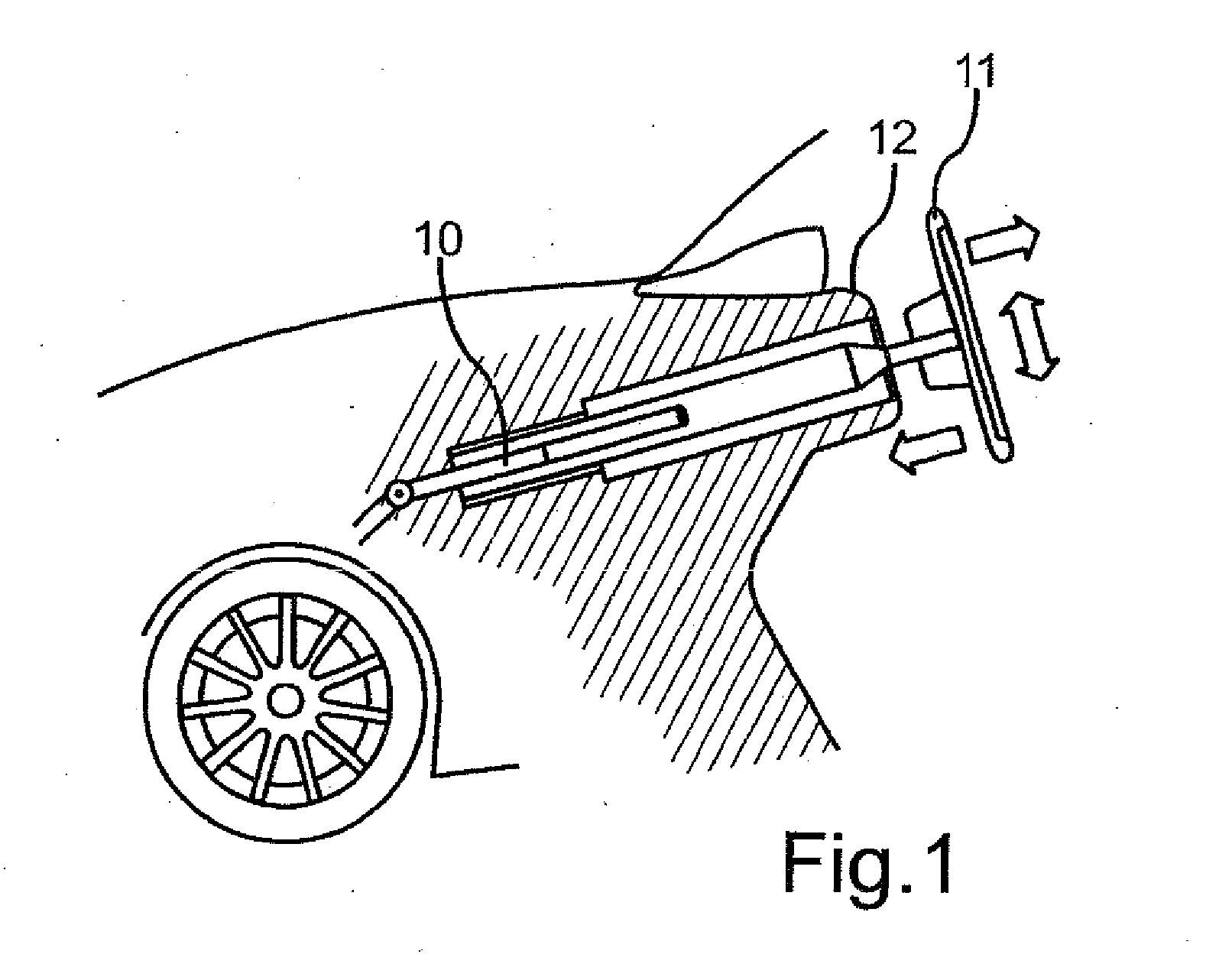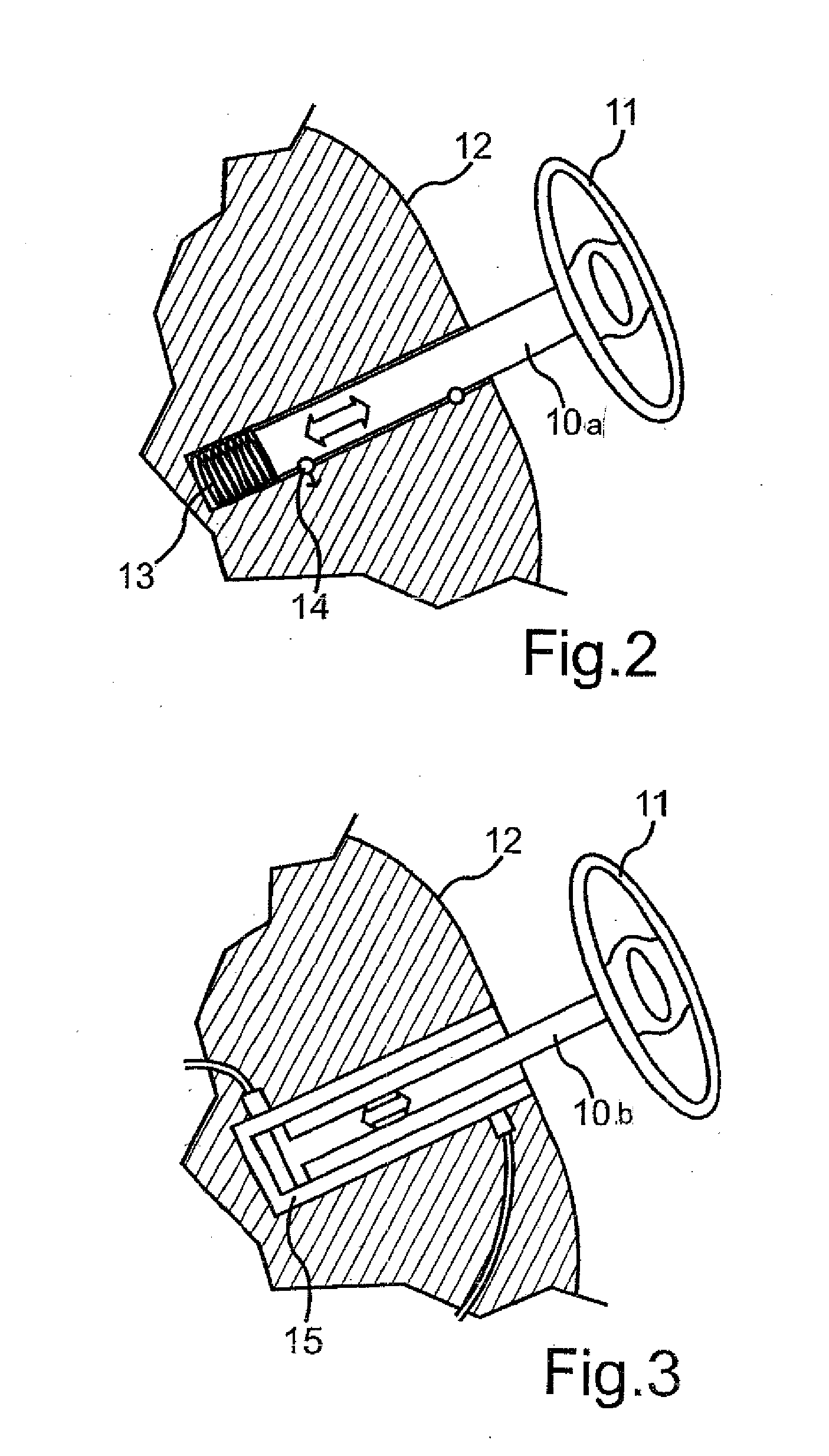Motor vehicle with retractable steering wheel
a technology of steering wheel and motor vehicle, which is applied in the direction of steering parts, mechanical steering, vehicle components, etc., to achieve the effect of preventing the steering column from yielding and improving the integration of the driver
- Summary
- Abstract
- Description
- Claims
- Application Information
AI Technical Summary
Benefits of technology
Problems solved by technology
Method used
Image
Examples
first embodiment
[0037]FIG. 2 shows a side view of a steering column, designated by reference numeral 10a. Parts corresponding with those in FIG. 1 are denoted by identical reference numerals and not explained again. In this embodiment, provision is made for an actuator which is essentially configured as a spring element 13 that is maintained under tension when the steering wheel 11 assumes the second position. A kinetic energy contained in the spring element 13 is sufficient to propel the steering wheel 11 in few milliseconds to the desired position. As the steering wheel 11 is shifted to the second position, the spring element 13 is tensioned. As depicted in FIG. 2 by way of example, the steering column 10 compresses hereby the spring element 13 which is locked in this position by a locking device 14 and thereby maintained under tension. Release of the spring element 13 is advantageously realized electromagnetically via a control device 19 (FIG. 5) which may also be used for deployment of the airb...
second embodiment
[0039]FIG. 3 shows a side view of a steering column 10b in which the actuator is configured in the form of a control element, advantageously as pneumatic or hydraulic cylinder 15. The pneumatic or hydraulic cylinder 15 has typically a gas or hydraulic reservoir for storing a gas or hydraulic fluid. In the event of an accident, the pneumatic or hydraulic cylinder 15 causes the attached steering column 10 to extend out of the dashboard 12, with the steering column 10 advantageously be constructed as piston of the pneumatic or hydraulic cylinder 15. Of course, the steering column 10b may also be moved by a separate piston of the pneumatic or hydraulic cylinder 15. A pressure force of the pneumatic or hydraulic cylinder 15 is dimensioned to enable propulsion of the steering wheel 11 from the second position to the first position within the required time. The need for a separate locking device can be dispensed with as a result of the pressure prevailing in the cylinder 15
third embodiment
[0040]FIG. 4 shows a side view of a steering column 10c in which the actuator is configured as an electric motor arranged in the region of the steering column 10c. The electric motor has a shaft which is connected to a pinion 16 in mesh with a toothed rack 17 which is arranged on the steering column 10c. In the event of an accident, the electric motor is activated to enable the steering column 10c to move to the first position as a result of a rotation of the pinion 16. In this position, the steering column 10c can be locked in place by locking the electric motor.
[0041]The electric motor can constructed as a linear motor arranged along the steering column 10c. The linear motor is activated in the event of an accident so that the extendible member of the steering column 10c can be moved in relation to a fixed member of the steering column 10c. Also in this variation, there is no need for the presence of a separate locking device to lock the steering column 10 in place when the desire...
PUM
 Login to View More
Login to View More Abstract
Description
Claims
Application Information
 Login to View More
Login to View More - R&D
- Intellectual Property
- Life Sciences
- Materials
- Tech Scout
- Unparalleled Data Quality
- Higher Quality Content
- 60% Fewer Hallucinations
Browse by: Latest US Patents, China's latest patents, Technical Efficacy Thesaurus, Application Domain, Technology Topic, Popular Technical Reports.
© 2025 PatSnap. All rights reserved.Legal|Privacy policy|Modern Slavery Act Transparency Statement|Sitemap|About US| Contact US: help@patsnap.com



